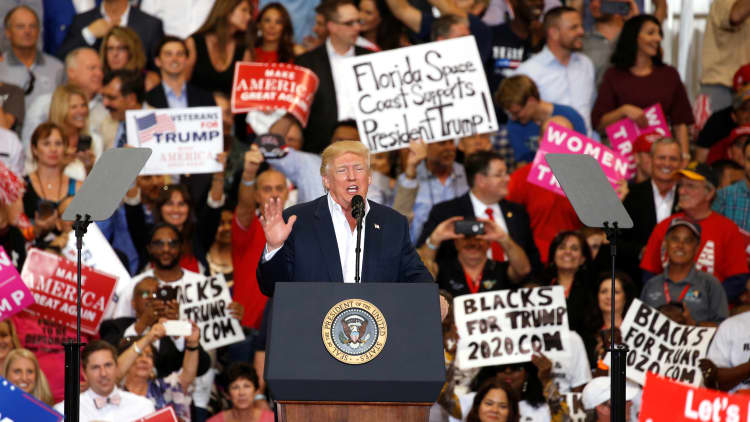When U.S. President Donald Trump told supporters in Melbourne, Florida, Saturday evening that "we've got to keep our country safe. You look at what's happening in Germany, you look at what's happening last night in Sweden," public attention turned to the Scandinavian country, expecting scenes of terror.
But as it turned out, Sweden had seen no specific security threats despite Trump's claim that the country "took in large numbers (of immigrants), they're having problems that they never thought possible."
Swedes, including those in government, have responded to Trump's assertions with both bemusement and a more serious denouncing of the current "post-truth" climate.
Carl Bildt, former Swedish prime minister, tweeted:
The Swedish embassy in Washington D.C. posted the following soon after Trump's comments:
Swedish Foreign Minister Margot Wallström tweeted a link to "post-truth" being named the Oxford Dictionaries Word of the Year in 2016:
Many users on Twitter mocked Trump's vague words.
Swedish tabloid Aftonbladet responded to Trump's speech by publishing a list of incidents under the headline, "This happened in Sweden Friday night, Mr President." The article referenced serious events as well as the more mundane, including news that "famous singer Owe Thörnqvist had some technical problems during rehearsal for (a) singing competition."
Trump later clarified that he was referring to a broadcast on Fox News in which filmmaker Ami Horowitz referred to Sweden as the "rape capital of Europe" and blamed the Muslim refugee population for a rise in crime.
In 2015, Sweden accepted over 160,000 asylum applications, coming behind only Germany and Hungary in the European Union.

This is not the first incident of confusion about a terrorist attack insinuated by a member of the Trump administration. Kellyanne Conway, a senior adviser to the president, was ridiculed earlier this year when she referred to the "Bowling Green Massacre."
Ewa Stenberg, chief political correspondent of Swedish newspaper Dagens Nyheter, reacted to Trump's speech on CNBC's Squawk Box by saying that "people were really surprised."
She explained that while Sweden had seen an "increase in violence, especially among criminals" in 2017, "it's difficult to connect that problem to immigrants." Referring to Trump's ambiguous claim, she asserted that "sure there's problems, but not at all on the scale that Donald Trump spoke about." She added: "it's not that dramatic and it's not terrorism."

